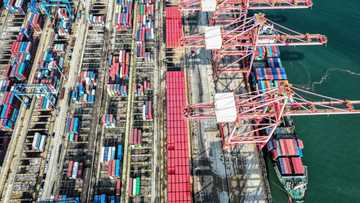Waste heat from London sewers eyed to warm UK parliament

Source: AFP
London landmarks including the UK parliament could be warmed by low-carbon heat powered by the River Thames, the London Underground train system and even the sewer network under new government plans.
Around 1,000 buildings could be in line to receive the alternatively sourced warmth.
Under the plans to develop the UK's biggest heat network to provide decarbonised heat, pipes designed to carry excess heat taken from various sources would power hot water and central heating systems in the Westminster area of central London, where parliament is located.
The £1.0-billion ($1.3-billion) low-carbon heating infrastructure project -- initiated by Westminster Council and the government's Department for Energy Security and Net Zero (DESNZ) -- aims to harness waste heat from a small area and distribute it locally.
Such networks are considered the cheapest way to decarbonise compared to each building having its own air source heat pump.
They are expected to play an increasingly important role in supplying UK energy over coming years as the government attempts to wean the country's power grid off fossil fuel energy sources by the end of the decade.
PAY ATTENTION: Legit.ng Needs Your Help! Take our Survey Now and See Improvements at LEGIT.NG Tomorrow
DESNZ minister Miatta Fahnbulleh said the project represented "bold new strides towards boosting our energy security, as one of seven heat network zones we're backing with over £5.0 million funding".
Prime Minister Keir Starmer's new Labour government promised at the election in July to deliver "zero-carbon electricity by 2030".
It means the production of electricity, previously dominated by coal and currently reliant on natural gas, would not contribute to overall carbon dioxide emissions.
Wind, solar, nuclear and tidal power would instead generate the vast majority of electricity used in Britain from the beginning of the next decade.
Labour says its plans will reduce reliance on fossil fuels from overseas and lead to cheaper household energy bills.
Construction of the South Westminster Area Network (SWAN) project is due to start in 2026.
PAY ATTENTION: Сheck out news that is picked exactly for YOU ➡️ find the “Recommended for you” block on the home page and enjoy!
Source: AFP



